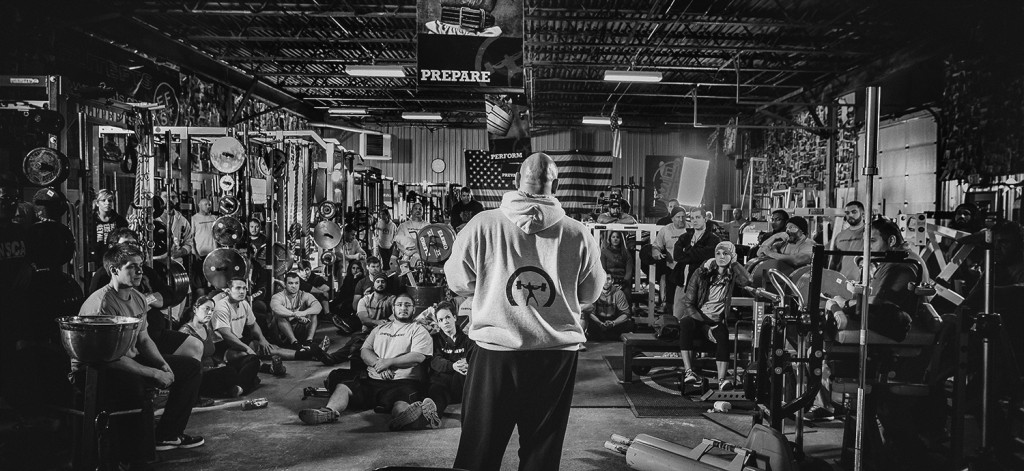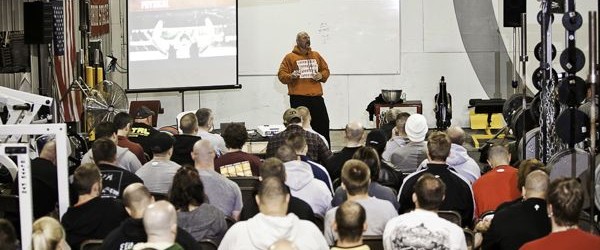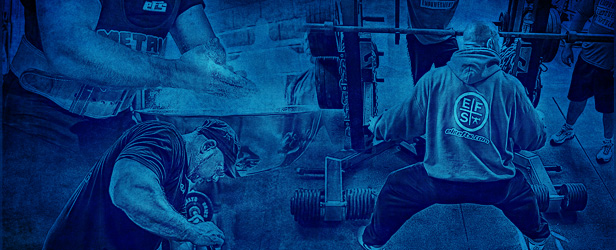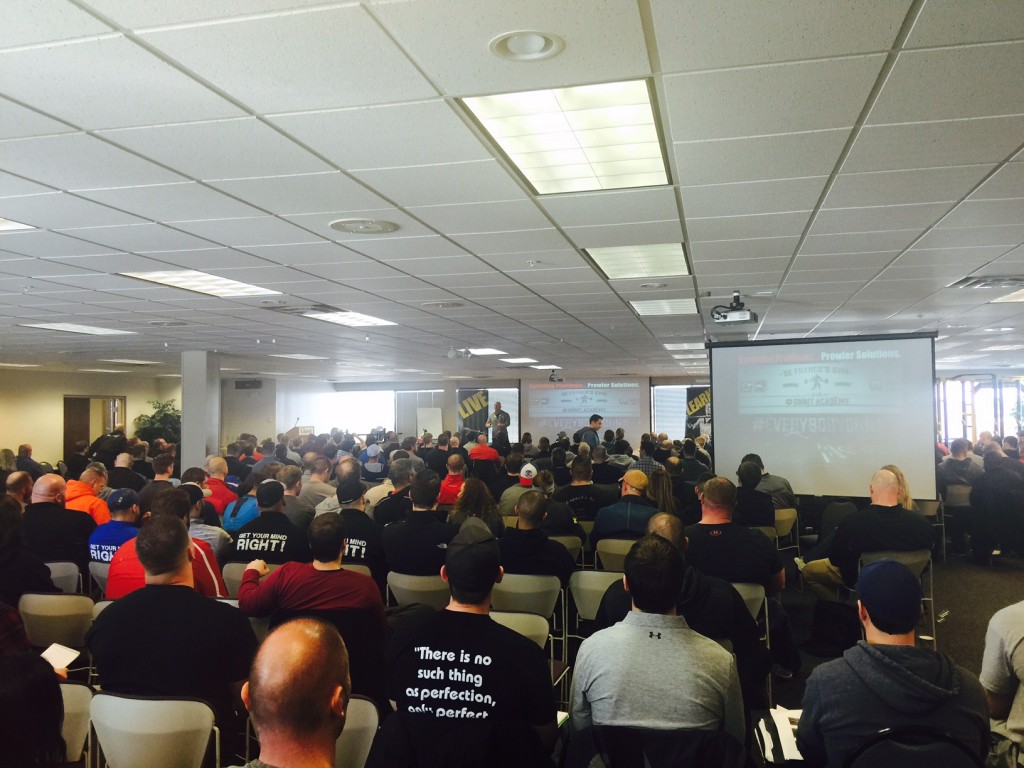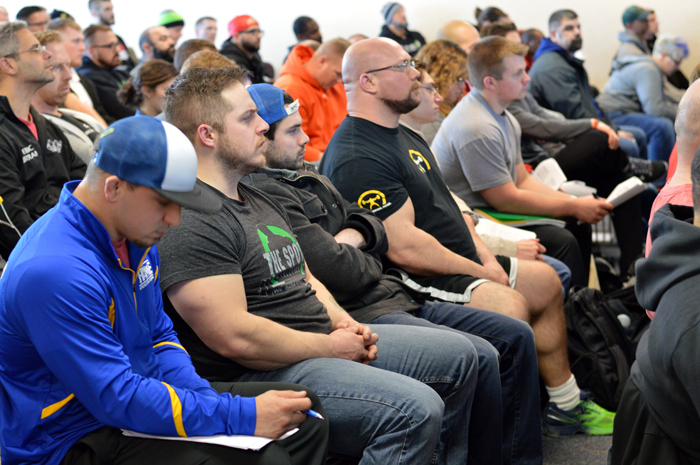
There’s always something crazy going on in this industry. At any moment, there’s a maniac in a weight room taking a dangerous lift and a shady businessman in an office finding a way to turn dirty profits. The posts you find here in my log are the musings of a mashed-up meathead — the reactions I have as I spend my whole life watching this industry. I will share my thoughts with you here, unedited, uncensored, unfiltered, and Under The Bar. If you are offended by profanity - do not read this.
Observations of Continuing Education
Observations on seminars, symposiums, clinics and certifications. I mentioned certifications in this group because for the most part, a large percentage of the certifications in the strength and fitness industry are nothing more than just seminars with a certification stamp on the end of it to validate higher price for whatever reason. But essentially they're all the same thing. I was on a podcast yesterday morning and we were discussing some of these things and how they fit in to the overall broad spectrum of the industry and it dawned on me that there are some things that a lot of people don't realize and don't really see from 10,000 feet...
...they don't see the forest through the trees.
That is a viewpoint that come from different angles. The first is to understand that when you're dealing with the strength and fitness industry, and this may or may not be the same in other industries, I don't know, I'm not in those other industries. But in the strength and fitness industry, continuing education, while I believe it is extremely important, and many others believe it's extremely important, when it's all said and done, I would venture to guess that only about 10% of those who are working in the industry actually do any continuing education at all.
A Couple Points to Keep in Mind
When you're speaking of those who attend clinics, seminars, symposiums or specialized certifications, you're really talking about a very small minority of the population that make up the industry. A couple points to keep in mind with this is...
First: if you are one of those 10%, you need to pay particular attention to those who are also attending because if you look really close, you're going to find that you're seeing the same people in these clinics and seminars that you're going to throughout the year so you may go to a seminar that elitefts puts on and you may go to the SWIS Symposium or you may go NSCA certification or you may go out to DeFranco certification, I can keep going on and on and on and what you're going to find is you're going to start to realize you're seeing a lot of the same people everywhere you go.
If you're seeing a lot of the same people, that's also telling you these are the people who are making up the best of the industry because they're constantly learning, they're constantly trying to get better. These are the people you really want to network with. You want to network with them even more than the presenters themselves because they're in the trenches, they're in the grind and they're still working on establishing their own philosophy on how they're going to do the work, how they're going to train the clients and how they're going to run their business.
Those people are absolutely critical and I think that many do not realize this. They're not looking around and understanding, "Oh, this person was ... I saw him here, I saw him there." The SWIS Symposium just last weekend, I saw many of the same people I saw 10 years ago that are still out learning their craft. That is extremely powerful, those are the people you want to network with.
Second: from the other side of the podium, the people who are doing the presenting, the people who are doing the speaking, you need to understand that you're speaking to are also the same people who are listening to everybody else. They are not there for the holy grail. They're not there for you to tell them step by step every single thing they're supposed to do. They're there because they want to learn what your philosophy is and what your take on it is so they can take their bits and pieces that they think they can use and apply that to their own philosophy.
They're not there to trade in their philosophy, they're too educated to do that. The people who do the program hopping are not the ones that are going to be coming to the symposiums or these clinics. The people coming to these clinics and symposiums are the ones that have a lot of it already figured out.
They're just trying to find that edge and that way that they can become a little bit better than they were the year prior or six months prior or a couple years prior which is why they continued to always go to more and more clinics and seminars.
The people who are there presenting need to understand that when they are presenting, they present those pieces of the puzzle that are unique to them as opposed to other presenters and other speakers that are out there and to understand that the people that they're speaking to are not there to bow down to their almighty power of wisdom. They're there to fill in their own and to also understand that they may be "a fan" of your method or your philosophy for a year, then they're going to go and they're going to study the next person's philosophy, then they're going to study the next person's philosophy, then they're going to study the next person's philosophy because that's what they do. They professionally educate themselves so they can become better.
That does not mean that they're not going to come back to your philosophy years later or a year later, two years later, three years later because they want to see what you're doing differently, what you've learned and what you've changed so they can learn from the mistakes you've made as well. It makes absolutely no sense to me when I hear presenters bashing other presenters or training methods.
It's stupid because the person who's attending doesn't care.The person who's attending only cares about what you have to offer that can help them.
They're going to move on to their next person anyhow, regardless of what you say or what you do. You can completely 100% disagree with somebody else's philosophy but that doesn't mean that the people who are listening to you have to take that same stance. They're not. They're absolutely not. They're going to listen to what you have to say and move on. When you bash the next person's philosophy, all you're really doing is cutting off your own head because these people now may not want to come back to listen to what you have to say because you just proved to the entire group you're not interested in learning other people's training philosophy, you already have all the answers and you already have it all figured out. That's not the type of people the delegates or attendants want to listen and learn from.
The Takeaway
The takeaway from this is understand that those who attend these events make up the minority of the professionals in that they are educated and they are working on dialing in their own training philosophy. They are not there for you to give them every single answer to every single training question. They have most of the answers already figured out. They're there to fill in the blanks and then to circle back later to see what's changed. Those who are the delegates and attending should look for familiar faces and begin to build their networks there.









